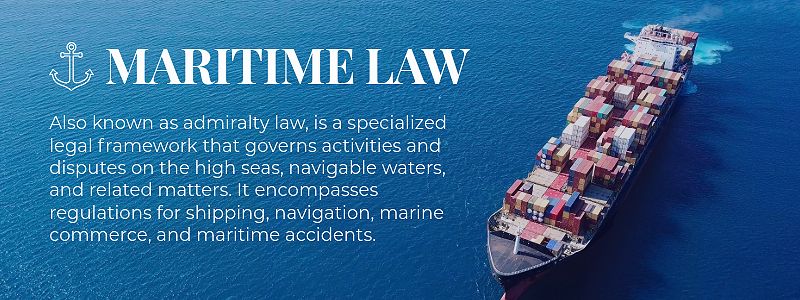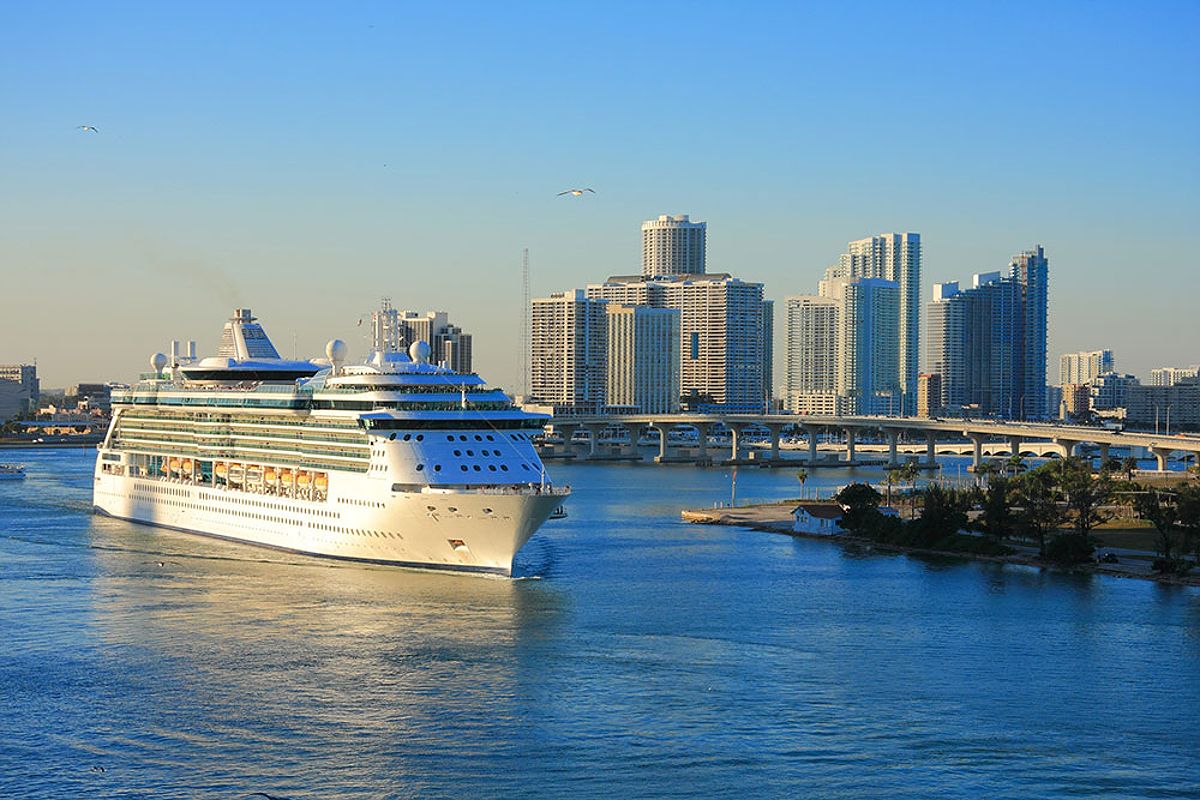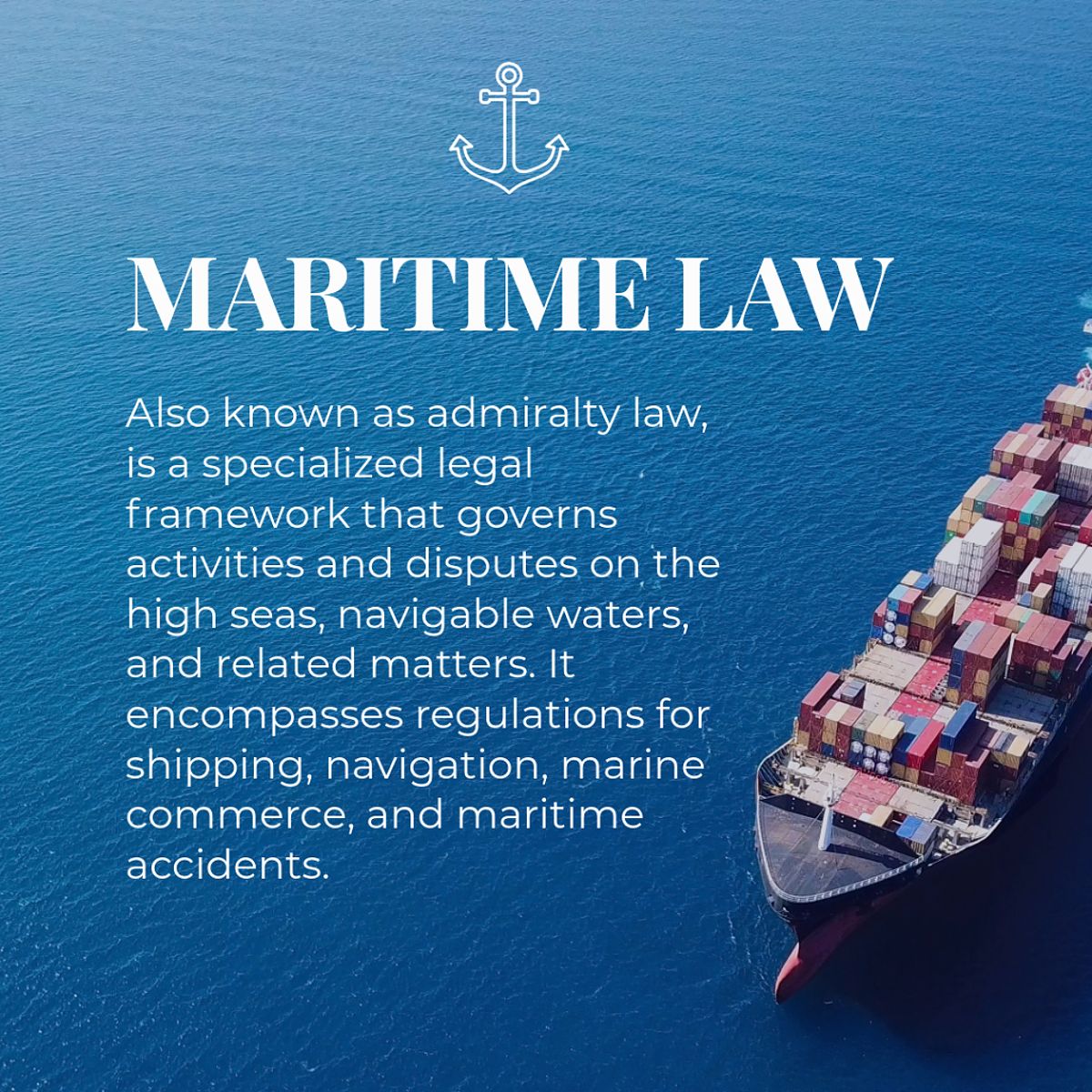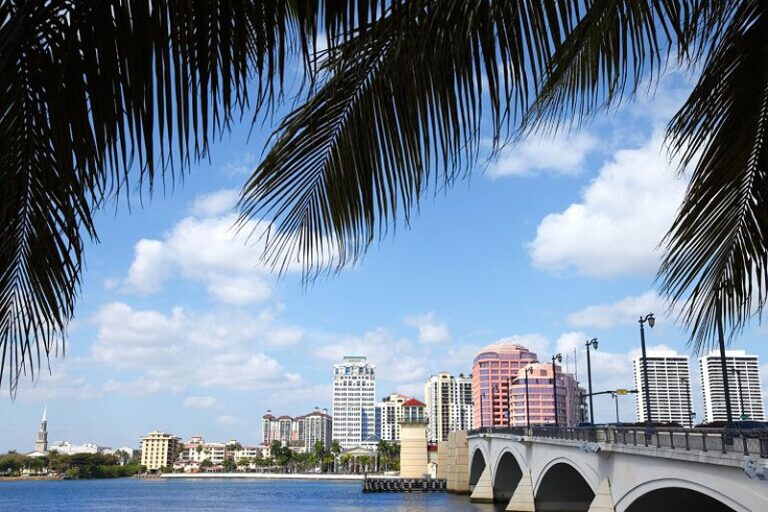Understanding Admiralty And Maritime Law: Your Rights After A Maritime Accident
The waters of the United States are crisscrossed by vessels of all sizes, from humble fishing boats to majestic cruise ships. But when accidents occur on these waterways, the legal landscape can be as treacherous as the seas themselves. Understanding the intricacies of admiralty and maritime law is crucial for anyone seeking justice after a maritime accident. This article will delve into the complexities of these laws, your rights as an injured party, and the importance of securing competent legal representation.
The Scope of Admiralty and Maritime Law
Admiralty and maritime law is a specialized legal framework that governs activities and disputes on navigable waters. Historically, these laws have evolved from ancient trading practices into a comprehensive system that addresses various maritime issues, including shipping, navigation, and personal injuries at sea.
Historical Development and Jurisdiction
Admiralty law originally focused on shipping contracts and torts occurring on the high seas, while maritime law expanded to cover personal injuries sustained by individuals working on vessels. In the United States, these terms are often used interchangeably, and federal courts hold jurisdiction over maritime cases due to their significant implications for commerce and international relations. The evolution of these laws reflects the growing complexity of maritime activities and the need to protect those who navigate these waters.
Navigable Waters Defined
Navigable waters encompass a wide range of bodies of water, including oceans, lakes, rivers, and harbors. The legal definition of a “vessel” is broad, including everything from cargo ships to recreational boats. Understanding what constitutes navigable waters is essential, as it determines the applicability of admiralty and maritime law. This includes, for example, the Great Lakes, the Mississippi River, and even some smaller inland waterways if they are used for commercial navigation.

Proximity to Shore and Its Implications
The application of maritime law can also depend on how close an incident occurs to the shoreline. For example, accidents occurring within three nautical miles of a U.S. shoreline may fall under general wrongful death laws or the Jones Act, while incidents that happen beyond this limit are typically governed by the Death on the High Seas Act (DOHSA). This distinction is crucial for determining the legal framework applicable to a specific case and the potential compensation available to injured parties.
Your Rights and Options: Seeking Compensation for Maritime Injuries
Understanding your rights under admiralty and maritime law is vital if you suffer an injury at sea. The legal landscape offers various avenues for seeking compensation, depending on the nature of your employment and the specifics of the incident.
The Jones Act: Protection for Seamen
The Jones Act is a federal statute that provides essential protections for seamen injured due to their employer’s negligence. This law enables seamen to file lawsuits against their employers for damages stemming from incidents like unsafe working conditions or inadequate training. The Jones Act is a cornerstone of maritime law, ensuring that those who work on vessels have recourse in the event of negligence.
Compensation Under the Jones Act
Seamen may recover compensation for various damages, including:
- Medical Expenses: Coverage for all medical treatments related to the injury, including emergency care, surgeries, and rehabilitation.
- Lost Wages: Compensation for income lost due to the inability to work, which may include both past and future earnings.
- Pain and Suffering: Damages for physical and emotional distress resulting from the injury, which can be substantial depending on the severity of the accident.
However, it is crucial to note that the burden of proof lies with the injured seaman, who must demonstrate that negligence contributed to the accident. This requirement underscores the importance of thorough documentation and legal representation to build a compelling case. For instance, a seaman injured due to a poorly maintained ladder on a cargo ship could sue their employer under the Jones Act, claiming negligence in providing a safe working environment.
The Longshore and Harbor Workers’ Compensation Act (LHWCA)
For maritime workers who are not classified as seamen, the Longshore and Harbor Workers’ Compensation Act (LHWCA) provides a framework for compensation. This federal law applies to longshoremen, harbor workers, and others employed in maritime industries, offering protections that are critical for those working near navigable waters.
Benefits Offered by the LHWCA
The LHWCA allows eligible workers to receive benefits that cover:
- Medical Care: Costs associated with treatment and rehabilitation, including necessary medical equipment and ongoing therapy.
- Lost Wages: Compensation for earnings lost due to injury, which may also include provisions for permanent disability if the worker cannot return to their previous job.
Eligibility for LHWCA benefits requires that the worker meets specific criteria, including the nature of their employment and the circumstances of their injury. Understanding these criteria is essential for workers seeking compensation under this law.
Maintenance and Cure: Employer’s Obligations
The doctrine of maintenance and cure mandates that maritime employers provide for the basic living expenses and medical care of injured seamen until they reach maximum medical improvement. This obligation exists regardless of fault, emphasizing the legal protections afforded to maritime workers. The principle of maintenance and cure is foundational in maritime law, ensuring that injured workers receive necessary support during their recovery.
Benefits Under Maintenance and Cure
The benefits provided under maintenance and cure include:
- Living Expenses: Coverage for basic necessities like food and shelter during recovery, which is crucial for seamen who may be unable to work.
- Medical Care: Ongoing medical treatment until the worker’s condition stabilizes, ensuring that injured seamen have access to the care they need.
Employers are legally obligated to fulfill these responsibilities, and failure to do so can result in significant legal repercussions.
Wrongful Death Claims: Pursuing Justice for the Deceased
In tragic cases of maritime-related fatalities, families can pursue wrongful death claims under various statutes, including the Jones Act, DOHSA, and general maritime law. Understanding the nuances of these claims is essential for seeking justice and compensation for the loss of a loved one.
Types of Compensation in Wrongful Death Claims
Surviving family members may be eligible to recover damages such as:
- Loss of Companionship: Compensation for the emotional impact of losing a loved one, which can be a significant aspect of wrongful death claims.
- Funeral Expenses: Coverage for the costs associated with burial and memorial services, which can be substantial depending on the circumstances.
- Lost Income: Compensation for the financial support the deceased would have provided, which may include future earnings and benefits.
However, proving negligence in maritime accidents can be challenging, and some argue that the burden of proof on families is too high, potentially hindering their ability to seek justice for their loved ones. For example, in the 2019 sinking of the El Faro cargo ship, families of the deceased crew members filed wrongful death claims under the Jones Act and DOHSA, seeking compensation for lost income, emotional distress, and other damages.

Navigating the Legal Process
Finding the right legal representation is crucial when navigating the complexities of admiralty and maritime law. Maritime injury lawyers possess a deep understanding of the specific laws and regulations governing maritime accidents, making them essential allies for injured parties.
Skills and Knowledge of Maritime Injury Lawyers
Maritime injury lawyers are equipped to handle various aspects of maritime law, including:
- Investigation of Claims: Thoroughly examining the details surrounding the accident to build a strong case, which may involve gathering evidence, interviewing witnesses, and consulting experts.
- Negotiation of Settlements: Engaging with insurance companies and employers to secure fair compensation, ensuring that clients are not taken advantage of during negotiations.
- Litigation Support: Representing clients in court if negotiations fail, providing the necessary legal expertise to navigate the complexities of maritime litigation.
Maximizing Your Compensation
By working with a maritime injury lawyer, you can ensure that you receive the full range of benefits available under the Jones Act, LHWCA, and other relevant laws. Their expertise in maritime jurisdiction is essential for navigating the intricacies of your case, allowing you to focus on recovery while they handle the legal complexities. They can also provide valuable insights into the potential value of your claim, helping you make informed decisions throughout the process.
The Importance of Timely Action
Time is critical when it comes to maritime accidents. For instance, the statute of limitations for filing a Jones Act claim is typically three years from the date of the injury, while wrongful death claims under DOHSA must be filed within one year. Failing to act promptly could result in the forfeiture of your legal rights.
Consulting a maritime injury lawyer immediately after an accident ensures that your case is filed within the appropriate timeframe and that all necessary evidence is preserved. Early legal intervention can make a significant difference in the outcome of your case.
Emerging Issues in Maritime Law
A recent trend in maritime law is the increasing focus on environmental protection. The International Maritime Organization (IMO) has implemented stricter regulations on ship emissions, and there is growing attention to the legal ramifications of oil spills and other environmental damage caused by maritime activities.
Another current development is the growing number of cases involving injuries related to offshore wind energy projects. As the industry expands, there is a greater need for clarity regarding the applicability of maritime law to these projects and the protections available to workers.
Conclusion
Understanding admiralty and maritime law is essential for anyone involved in a maritime accident. These laws offer unique protections and compensation opportunities, but navigating this complex legal landscape can be challenging without the guidance of an experienced maritime injury lawyer.
If you or someone you know has been injured at sea, don’t hesitate to reach out to a qualified maritime lawyer to discuss your specific situation. Your recovery and well-being are paramount, and seeking legal representation can significantly enhance your chances of receiving the compensation you deserve. Contact a maritime lawyer today to learn more about your rights and options. Remember, the sooner you take action, the better your chances of securing the justice you seek.







